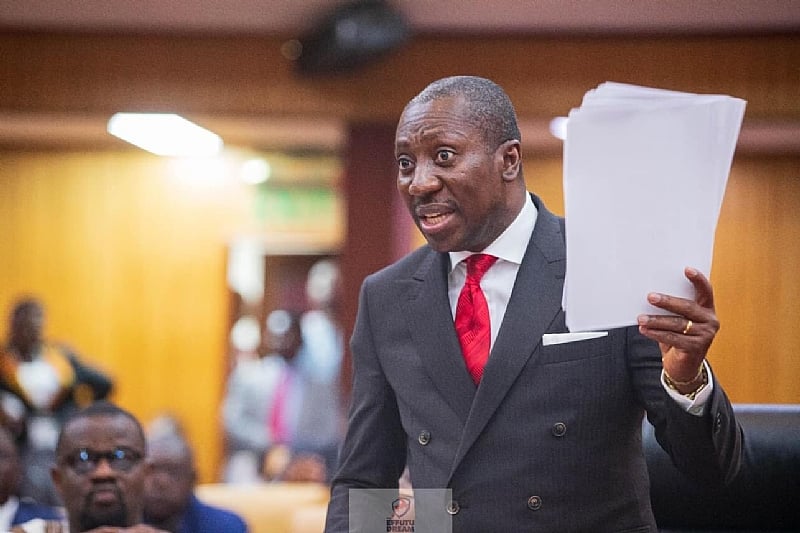The Ghanaian Parliament witnessed a tumultuous period during the vetting of ministerial nominees, marked by protests, chaos, and suspensions. The root of the conflict stemmed from a disagreement between the Majority and Minority caucuses regarding the scheduling of the vetting process. The Minority, led by Mr. Alexander Afenyo-Markin, accused the Majority of unilaterally altering the agreed-upon schedule, adding more nominees to the vetting list without prior consultation. This perceived breach of protocol sparked a protest by the Minority, which unfortunately escalated into a physical altercation between members of the opposing factions. The disruption resulted in damage to parliamentary property, including broken tables and destroyed microphones.
Mr. Afenyo-Markin defended the Minority’s decision to protest, emphasizing the lack of dialogue and the Majority’s disregard for the pre-agreed schedule. He maintained that the Minority’s intention was to stage a peaceful demonstration to express their discontent, but the situation spiraled out of control. While acknowledging the unfortunate turn of events, Mr. Afenyo-Markin also pointed fingers at the Clerk of the Appointments Committee, Madam Gifty Jiagge-Gobah, accusing her of partisan bias in favor of the ruling National Democratic Congress (NDC). He claimed she facilitated the appearance of certain individuals before the Committee, further fueling the Minority’s grievances. He reiterated the Minority’s commitment to thorough vetting and their refusal to be intimidated or silenced in their questioning of nominees.
The chaotic scenes prompted Speaker Alban Bagbin to take swift action. Initially, he suspended four MPs – two from each caucus – for their alleged involvement in the disruptions. The suspended members included both Chief Whips and Second Deputy Whips, highlighting the seriousness of the situation. The Speaker also initiated a formal criminal complaint with the police, signaling his intention to hold those responsible for the disorder accountable. This action was intended to demonstrate that such behavior would not be tolerated within the hallowed halls of Parliament.
Beyond the suspensions and criminal complaint, Speaker Bagbin outlined a series of comprehensive measures to address the immediate aftermath of the incident and prevent future occurrences. Recognizing the potential damage to public trust in the vetting process, he ordered the reconstitution of the Appointments Committee. This move sought to ensure impartiality and rebuild confidence in the committee’s ability to perform its duties fairly. The Speaker also tasked the Clerk of Parliament with assessing the damage caused to parliamentary property during the clashes, with the intention of surcharging the MPs responsible for the destruction.
Furthermore, a seven-member committee was established to conduct a thorough investigation into the events. This committee, chaired by Mr. Bedzrah, an NDC MP, was given the mandate to delve into the details of the incident, identify the individuals responsible, and recommend appropriate actions. This demonstrated the Speaker’s commitment to transparency and accountability in addressing the issue. The investigation aimed to provide a comprehensive understanding of the factors that contributed to the chaos and to offer recommendations to prevent similar incidents in the future.
These decisive actions by Speaker Bagbin reflect his determination to uphold the dignity and integrity of Parliament. The incident underscored the challenges facing Ghana’s parliamentary democracy, particularly the need for constructive dialogue, adherence to agreed-upon procedures, and respect for differing viewpoints. The Speaker’s response aimed to restore order, rebuild trust, and ensure that the important work of vetting ministerial nominees could proceed in a peaceful and orderly manner. The incident served as a stark reminder of the importance of maintaining decorum and civility in parliamentary proceedings, even amidst passionate disagreements. The measures implemented by the Speaker aimed to reinforce these principles and to safeguard the reputation of the Ghanaian Parliament.














